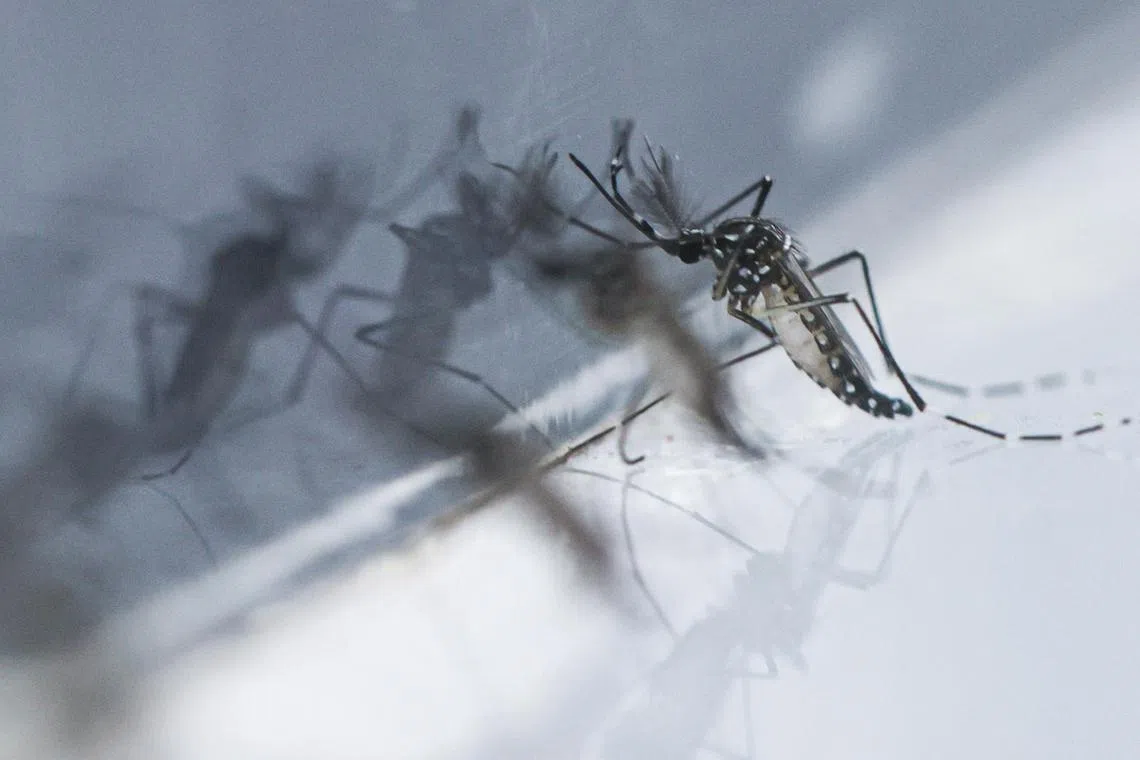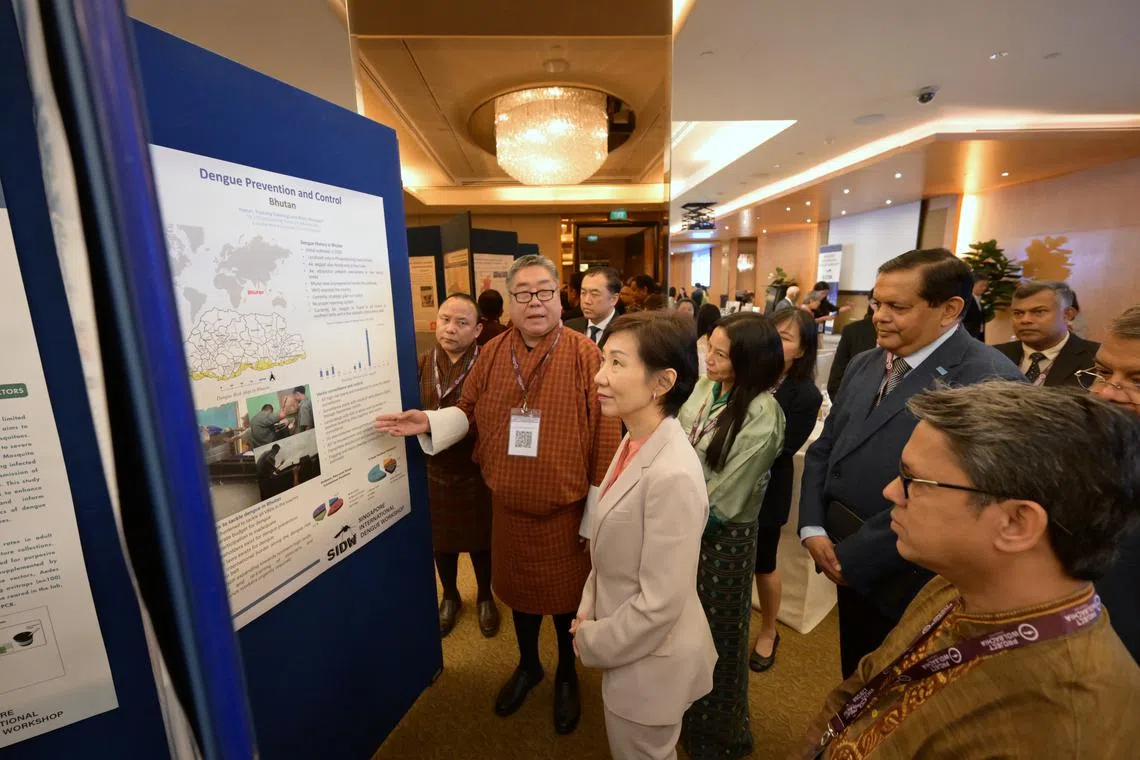Project Wolbachia for dengue control to cover 50% of all households in Singapore by 2026
Sign up now: Get ST's newsletters delivered to your inbox

The release of the male mosquitoes in high-risk dengue areas can reduce the mosquito population over time.
ST PHOTO: GIN TAY
Follow topic:
SINGAPORE – Project Wolbachia, an effort to control dengue through the release of lab-grown mosquitoes, will expand to cover 50 per cent of all households in Singapore by 2026.
The insects, released to control the population of the Aedes aegypti mosquitoes responsible for spreading the dengue virus, will reach 800,000 households by 2026, covering the majority of areas at risk of large dengue outbreaks.
Currently, the project covers about 520,000, or nearly 35 per cent of all households here.
Minister for Sustainability and the Environment Grace Fu announced this on Nov 25 at the opening ceremony of the 8th Singapore International Dengue Workshop at Jen Singapore Tanglin hotel.
The workshop, which runs until Nov 29, is organised by the World Health Organisation, the National Environment Agency’s (NEA) Environmental Health Institute, the Ministry of Foreign Affairs and the National Centre for Infectious Diseases.
The project, which began in 2016, is named after the Wolbachia bacteria introduced to male mosquitoes in the lab. When female mosquitoes in the environment mate with these mosquitoes, their eggs do not hatch.
Hence, the release of the male mosquitoes in high-risk dengue areas can reduce the mosquito population over time.
A recent study by NEA showed that residents in areas where the Wolbachia mosquitoes have been released are 75 per cent less likely to be infected with dengue, said Ms Fu.
This is because the Aedes aegypti mosquito population in these areas fell by between 80 per cent and 90 per cent.

Minister for Sustainability and the Environment Grace Fu (centre) at the opening ceremony of the 8th Singapore International Dengue Workshop on Nov 25.
ST PHOTO: NG SOR LUAN
The benefits extended to the residents in adjacent areas too, she said. Even though lab mosquitoes were not released in those adjacent sites, the residents were 45 per cent less likely to contract dengue, she noted.
“This spillover effects suggest that neighbouring communities stand to benefit from releases as well,” she said.
Ms Fu noted that in 2023 and 2024, an expected mid-year surge in dengue cases was “largely subdued” despite a high baseline of dengue cases, low population immunity, and high mosquito numbers in some areas not covered by Project Wolbachia.
“Wolbachia coverage, together with strong and sustained community vigilance against breeding, has likely helped to avert large outbreaks,” she said.
Data from NEA shows that as at Nov 16, there have been 13,057 dengue cases recorded here in 2024, with 15 deaths from local infections.
In 2025, NEA will study the possibility of using Wolbachia technology to suppress transmission in large dengue clusters.
Wolbachia-Aedes mosquitoes will be deployed at selected fast-growing, large clusters to supplement other methods of controlling the growth of dengue clusters.
“As it typically takes about three months of releases to achieve significant reductions in the mosquito population, the Wolbachia releases may not show immediate impact on dengue transmissions, but may have the potential to limit the growth of prolonged dengue clusters,” said NEA.
To meet the needs of Project Wolbachia’s expansion, two existing facilities – managed by NEA and Verily Life Sciences, a unit of Google’s parent company Alphabet – will expand their capacity for the production of Wolbachia-Aedes mosquitoes.
A third facility will be developed to supplement the capacity for producing the insects.

